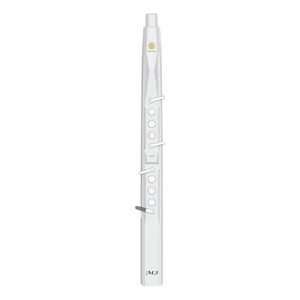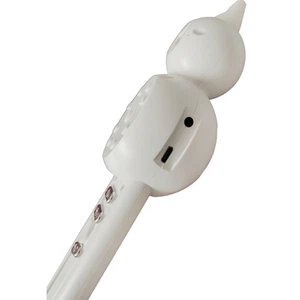Aerophone instruments, such as the saxophone, trumpet, flute, and clarinet, are beautiful musical instruments that can produce a wide range of sounds. Whether you are a beginner or an experienced player looking to improve your skills, consistent and effective practice is essential. In this article, we will explore various ways to practice and improve your playing level of aerophone instruments.
I. Establish a Regular Practice Routine
The first step in improving your playing level is to establish a regular practice routine. Set aside a specific time each day for practice and stick to it as much as possible. Consistency is key, as regular practice helps build muscle memory and improves your overall technique.
Start with short practice sessions and gradually increase the duration as you progress. For beginners, 15 to 30 minutes of practice per day is a good starting point. As you become more advanced, you can increase the practice time to an hour or more.
II. Warm-up Exercises
Before you start your practice session, it is important to warm up your body and instrument. Warm-up exercises help to loosen up your muscles, improve your breathing, and prepare your instrument for playing.
Some good warm-up exercises include:
Long tones: Play long, sustained notes on your instrument. Focus on producing a clear, steady tone and maintaining good breath support. Start on a low note and gradually move up the scale.
Lip slurs: Play smooth glissandos between different notes without using the tongue. This helps to improve your lip flexibility and control.
Scales and arpeggios: Play scales and arpeggios slowly and evenly, paying attention to your intonation and finger technique.
Breathing exercises: Practice deep breathing exercises to improve your lung capacity and breath control. Take slow, deep breaths in through your nose and exhale slowly through your mouth.
III. Focus on Technique
Improving your technique is essential for playing aerophone instruments at a high level. Here are some areas to focus on:
Embouchure: Your embouchure is the way you form your lips and mouth around the mouthpiece of your instrument. Develop a proper embouchure by practicing with a mirror and paying attention to the position of your lips, teeth, and tongue. Experiment with different embouchure settings to find what works best for you.
Breath control: Good breath control is crucial for producing a full, rich sound. Practice breathing exercises to improve your lung capacity and learn how to control the flow of air through your instrument. Use your diaphragm to support your breath and avoid shallow breathing.
Finger technique: Develop good finger technique by practicing scales, arpeggios, and technical exercises. Focus on accuracy, speed, and smoothness. Use a metronome to help you maintain a steady tempo.
Tonguing: Tonguing is the way you use your tongue to start and stop the sound on your instrument. Practice different tonguing techniques, such as single tonguing, double tonguing, and triple tonguing, to improve your articulation.
IV. Practice with a Metronome
Using a metronome is a great way to improve your timing and rhythm. Start by playing simple exercises at a slow tempo and gradually increase the speed as you become more comfortable. Focus on keeping a steady beat and playing in time with the metronome.
You can also use the metronome to practice different rhythms and subdivisions. For example, practice playing quarter notes, eighth notes, and sixteenth notes at different tempos. This will help you develop a better sense of rhythm and improve your ability to play complex rhythms.
V. Listen and Analyze
Listening to great musicians is an important part of improving your playing. Listen to recordings of professional musicians playing your instrument and pay attention to their technique, tone, and musicality. Analyze what they are doing and try to incorporate some of their techniques into your own playing.
You can also listen to yourself play and analyze your own recordings. Listen for areas where you can improve, such as intonation, rhythm, or tone quality. Use this feedback to make adjustments and improve your playing.
VI. Play with Others
Playing with other musicians is a great way to improve your playing level. Join a band, ensemble, or jam session to practice playing with others and develop your musicality. Playing with others will also help you improve your listening skills and learn how to blend your sound with others.
You can also take lessons or attend workshops with other musicians. This will give you the opportunity to learn from others and receive feedback on your playing.
VII. Learn Music Theory
Learning music theory is an important part of becoming a better musician. Understanding music theory will help you read music, improvise, and compose your own music. Take some time to study music theory books or take online courses to improve your knowledge.
Some areas of music theory to focus on include:
Scales and modes: Learn the different scales and modes and how they are used in music. Practice playing scales and modes on your instrument to improve your finger technique and intonation.
Chords and harmony: Understand how chords are built and how they are used in music. Practice playing chords and progressions on your instrument to improve your harmonic understanding.
Rhythm and meter: Learn different rhythms and meters and how they are used in music. Practice playing different rhythms and subdivisions to improve your sense of rhythm.
Improvisation: Learn the basics of improvisation and how to create melodies and solos on the fly. Practice improvising over different chord progressions and styles of music.
VIII. Take Care of Your Instrument
Taking good care of your instrument is essential for maintaining its quality and performance. Clean your instrument regularly and store it in a safe place when not in use. Follow the manufacturer's instructions for maintenance and repair.
If you are having problems with your instrument, take it to a professional repair person for diagnosis and repair. Don't try to fix it yourself unless you are experienced and know what you are doing.
IX. Stay Motivated
Improving your playing level takes time and effort, so it is important to stay motivated. Set goals for yourself and track your progress. Celebrate your achievements along the way and don't get discouraged by setbacks.
Find ways to make practice fun and enjoyable. Play music that you love and experiment with different styles and techniques. Join a music community or online forum to connect with other musicians and share your progress.
In conclusion, improving your playing level of aerophone instruments requires consistent practice, focus on technique, listening and analysis, playing with others, learning music theory, taking care of your instrument, and staying motivated. By following these tips and putting in the time and effort, you can become a better musician and enjoy the beauty of playing aerophone instruments.
SUNRISE MELODY M1 Electronic Wind Instrument
. Revisit the passion and dreams of youth
. M1 electric clarinet wind instrument -- The good news for beginners
. Rich and diverse timbres
. Powerful functions and easy operation
. Perfect after-sales service



